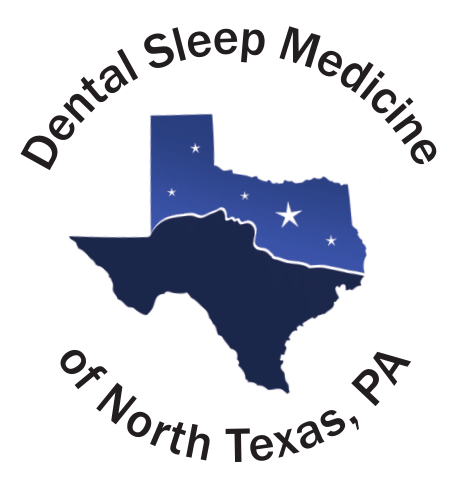Preserve the Health of Your and Your Unborn Child
Although being pregnant is the start of an amazing new chapter in your life, the nine months that follow may be very taxing. Because of this, moms who have sleep apnea at this stage of their lives have additional difficulties. This disorder can interfere with sleep and make it hard to get the rest your body needs during the night.
Thankfully, Dr. Scott Clinton of Dental Sleep Medicine of North Texas is a sleep specialist with expertise in easy, minimally invasive sleep apnea therapy. If you’re a South Dallas expecting mother impacted by this disorder, call our Waxahachie office at (972) 737-5337 for advice on how to protect the health of you and your unborn child.

What Is Sleep Apnea?

Obstructive sleep apnea (OSA) is a sleep condition that causes relaxation of the muscles in the back of the throat during sleep. This may cause you to wake up during the night because it obstructs your airway and makes it difficult for your body to breathe. Frequent, loud snoring is one of the most noticeable signs of sleep apnea.
Pregnant women who snore excessively may be suffering from sleep apnea. Not everyone who snores, though, has this illness. Rather than being a sign of normal snoring, if the person sounds like they’re choking or gasping for air while they sleep, it’s most likely indicative of sleep apnea.
Signs and Symptoms of Sleep Apnea During Pregnancy
It’s critical to recognize sleep apnea symptoms so your body can receive the necessary care. Pregnant women may have the following symptoms:
- Constant headaches
- Dry mouth
- Frequent urination
- Heartburn overnight
- Daytime fatigue
- Restlessness overnight
Some of these symptoms are similar to what you could be experiencing during pregnancy. However, Dr. Clinton advises that you play it safe and undergo a sleep test. If you’re experiencing any of these symptoms, contact our Waxahachie office at (972) 737-5337 as soon as possible.

How Sleep Apnea Affects Your Unborn Child

Sleep apnea is a serious medical condition that requires professional attention. If left untreated, it may result in:
- Diabetes
- Heart disease
- Prolonged labor
- Unplanned Cesarean sections
- Fetal growth restrictions
Obesity hypoventilation syndrome (OHS) is another potential consequence. This is what happens when an overweight person breathes insufficiently, raising blood carbon dioxide levels and lowering blood sugar. These modifications may harm your and your unborn baby’s health.
Treating Pregnancy-Related Sleep Apnea
It’s critical to diagnose and treat sleep apnea as soon as possible to safeguard your and your child’s health. The most popular prescription is for a CPAP machine, but most patients report that it’s excessively noisy and hard to sleep with.
Alternatively, to address the symptoms of sleep apnea, Dr. Clinton provides personalized oral appliances. You can breathe normally through the night thanks to these devices, which gently move your lower jaw forward and keep your tongue from falling into your airway. Oral appliances, as opposed to CPAP, are:
- Comfortable to wear
- Silent
- Easily portable
- Allows you to sleep in any position you like
An oral appliance is often the answer for many individuals with sleep apnea to start getting the good sleep they deserve. To find out if you should receive oral appliance therapy, schedule a consultation with our Waxahachie sleep dentist.

Tips for Coping with Sleep Apnea During Pregnancy

During pregnancy, managing sleep apnea requires careful attention to sleep habits and lifestyle choices. Here are some effective strategies:
- Sleep Positioning: Sleeping on your side, especially the left side, can ease pressure on the airways, reducing sleep apnea symptoms. Utilize supportive pillows to maintain a comfortable sleeping position throughout the night.
- Dietary Recommendations: Maintain a healthy weight by following a balanced diet recommended by your healthcare provider. Avoid heavy meals before bedtime, as they can exacerbate symptoms. Opt for lighter meals earlier in the evening to promote better sleep quality.
- Creating a Comfortable Sleep Environment: Ensure the bedroom is dark, quiet, and conducive to relaxation. Consider using a humidifier to keep the air moist, as dry air can worsen sleep apnea symptoms.
- Partner Support and Involvement: Educate your partner about sleep apnea and the importance of support during pregnancy. Consider using sleep position aids, such as pregnancy wedges or body pillows, with your partner’s assistance.
However, it’s crucial to consult your healthcare provider before implementing any significant changes to your sleep routine or treatment plan during pregnancy. They can offer personalized guidance tailored to your individual needs and circumstances.
Frequently Asked Questions
Will my sleep apnea symptoms go away after my pregnancy?
Sleep apnea symptoms may either subside after your pregnancy or persist in the years that follow. Since it’s easy enough to discontinue treatment should your sleep apnea disappear, it’s always wise to treat symptoms while they are present. Appropriate care helps protect the health of both you and your unborn child, and noninvasive therapies are easy to maintain for as long as you experience sleep apnea.
How common is sleep apnea during pregnancy?
Studies show that women are typically less likely than men to suffer from sleep apnea. However, the rates of sleep apnea during pregnancy increase significantly, affecting as many as one in four expecting mothers during the third trimester. This is generally understood to be the result of hormonal changes and the redistribution of body weight during pregnancy.
Can other conditions make developing sleep apnea during pregnancy more likely?
While pregnant, certain medical conditions can predispose you to new or worsened sleep apnea symptoms. You may have an increased chance of developing sleep apnea during your pregnancy if you suffer from conditions including:
- Preeclampsia or high blood pressure
- Obesity
- Diabetes, including gestational diabetes
- Deviated septum or other breathing issues
What’s a sleep test?
A sleep specialist will conduct an overnight sleep test in their lab to diagnose sleep disorders. Your heart rate, respiration, sleeping patterns, oxygen levels, and brain wave patterns are all monitored during the exam. Following the test, your physician will be able to diagnose you, and your sleep dentist will then determine the best course of treatment.
Visit Dr. Clinton for Sleep Apnea Treatment
Dr. Clinton and our dental team fully understand the impact of sleep apnea on pregnant women. Without proper treatment, you and your unborn child both face a serious risk of developing health complications.
Thankfully, Dr. Clinton can provide the comfortable and effective care you need with oral appliance therapy in the South Dallas area, including Red Oak, Midlothian, Maypearl, and Ennis. Call our Waxahachie office today at (972) 737-5337 to schedule a consultation with Dr. Clinton. Or fill out our online contact form below, and we’ll reply promptly. It’s the first step to a better night’s sleep.
